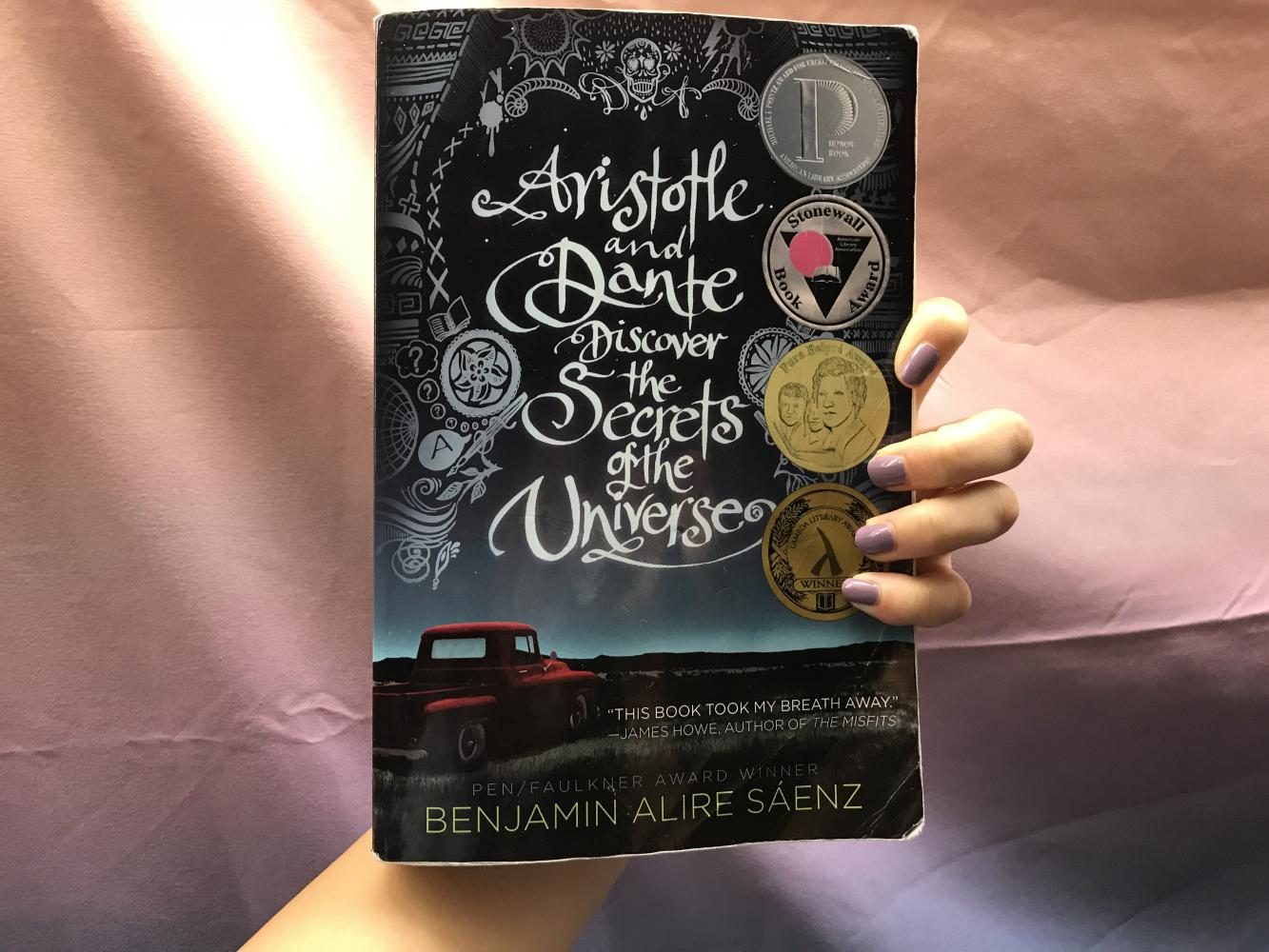Book Review: “Aristotle and Dante Discover the Secrets of the Universe”
September 11, 2017
Last week, I was handed this floppy paperback with the promise that it would be the most amazing read of my life.
Perhaps my first mistake was believing that and rushing into “Ari and Dante” with my expectations too high, because this book fell short for me. Don’t get me wrong; Benjamin Alire Sáenz’s style is dry but endearing, and the book is still worth a read, especially if you’re into angsty young adult friendship/romances with an extra large side of awkward parenting. However, it’s not nearly as transcendent as word on the street and its four major book awards have hyped it up to be.
The novel’s most distinctive characteristics are its down-to-earth prose and bare dialogue. Passionate readers will tell you that you have to “read between the lines for the real meaning of the story.” This is a lie. There is no magical message wrapped up in Sáenz’s terse storytelling. Sáenz has clearly penned the majority of “Ari and Dante’s” most thought-provoking lines at the beginning of every section, a writing tactic which nearly careens it over the edge of being too preachy.
That’s not to say, though, that there aren’t aspects of “Ari and Dante” that I enjoyed. As a coming of age novel, it plays the role well. The first person narrative of Ari (short for Aristotle), who has an estranged older brother in prison and can’t decide how Mexican he wants to be, is written in a convincing tone. Ari seems like he doesn’t know when to care too much about his world and when to not care at all. His best friend Dante is a charming and open-minded boy whose parents substitute greetings with kisses on the cheek. Sáenz turns friendship into romance with the swiftest of maneuvers, making the journey of self-discovery all the more important.
Overall, “Ari and Dante” tries its utmost to deliver a rich and authentic slice from the life of a Mexican-American teenage boy, but it ultimately disappoints with its cringe-worthy clichés, flat characterizations, and unrealistic parenting. Take its acclaim with a grain of salt and recognize that there are no secrets of the universe contained within its 359 pages.










